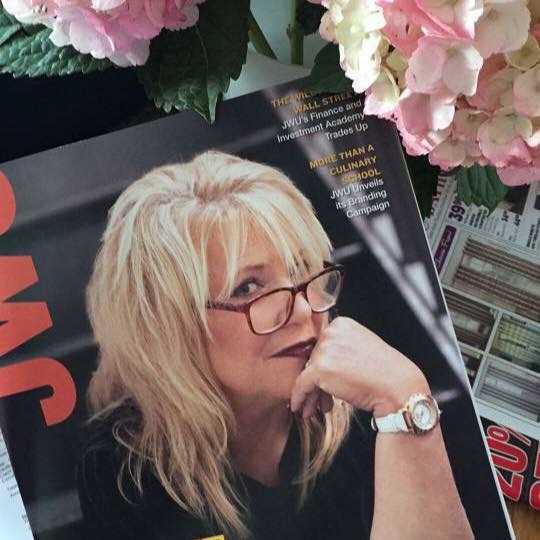Search Posts
Recent Posts
- Vinny Paz to be inducted TODAY into the International Boxing Hall of Fame – CES Boxing June 7, 2025
- In the News… quick recap of the week’s news (6.7.25) June 7, 2025
- Burn with Kearns: Strong without the spend: How scraps became strength tools – Kevin Kearns June 7, 2025
- Rhode Island Weather for June 7, 2025 – Jack Donnelly June 7, 2025
- How to advocate for threatened properties: The Heritage Alliance of Pawtucket June 7, 2025
Categories
Subscribe!
Thanks for subscribing! Please check your email for further instructions.

GriefSpeak: A stroke of genius
GriefSpeak: “A stroke of genius”
By: Mari Dias
She said she was grieving due to a loss of words. Not voice. Words. Her name is Rosetta, aptly named after the stone. Whether hieroglyphics or shorthand, the stone “represents a crucial key in the process of encoding information.” Rosetta is a stunning 60-year-old woman, (although one would never guess her age by her appearance), as she is an old soul with young, porcelain skin unmarked by years of deep thinking, which resulted in many stellar poems and lyrics. She is bilingual, and for many years has been an avid logophile, (lover of words), bibliophile (lover of books/reading and melophilia (lover of music).
Rosetta was always a unique girl/woman given that she is an old soul. She seems to carry generations of knowledge and thoughts, (similar to Jung’s collective unconscious), acquired through her reading and writing. She shared this gift with her students in her English classes in an attempt to impress them with words, with writing, with the beauty of music, with her demanding philosophy for perfection. “Art does not imitate life. Life does not imitate Art.” “Life is Art, Art is life.”
She adores the classics, the rich treasure trove of words strung together in a sentence that makes the reader weep in despair or cry in ecstasy. This is her legacy. Her words. Her brilliance in describing the mere mundane with a vocabulary stoked from years of reading.
Until she couldn’t.
Rosetta suffered a stroke. She stopped teaching. She loss interest and patience in reading. She hesitated when searching for lyrics. Following a great deal of speech and physical therapy, she began to resemble the Rosetta everyone loved and admired; however, she knew her suffering from aphasia/dysphasia (lack of language/impaired language) is a roadblock that seems permanent. She regained her voice, yet still struggles to find her words.
How often have we heard the phrase “I’m at a loss for words” or “I can’t seem to find the right word”, as if all words are simply free-floating fireflies in our brain and all we need do is shine a flashlight to identify the ‘right word”. The Aha! Moment. Rosetta found her flashlight, but it shines dim as she searches the recesses of her mind for “the right word.” This search is more like a scavenger hunt for her now.
Rosetta is one of the most brilliant women I know. She possesses an innate ability to maximize her skills of introspection and insight. She ephemerally knows people on a deeper level. Yet, she is often frustrated and lacks confidence in pinpointing a word that was once on the tip of her tongue. Sometimes searching for words results in a blank thought.
I love this woman. I loved her before the stroke and love her now, still. After the stroke. I think this true of many who have witnessed a loved one struggle with the results of a stroke. Fortunately, Rosetta can speak, walk, swallow, eat, and with little effort, write a text. She can think. She can mostly remember. Yet her cache of words that defined some of what she was, are lost to her.
That’s what loss is. Losing someone or something so valuable that is taken for granted until it’s gone.
Many people today are dealing with the loss of their voices and/or words. Not from a stroke, but from fear of repercussion from friends, family, and society over political views. I don’t know which is worse, more life-changing and more frustrating – the literal or metaphorical loss. Yet thanatologists remind us that a loss is a loss is a loss, despite the cause, the emotional effects are the same.
For Rosetta, I know her so well that I can often provide her with her own words- the ones she cannot seem to find. I know how she thinks, as well as the language in which she thinks. Both languages.
She is still a logophile, a discerning bibliophile and always a melophile. She is my soul sister and we share our soul sister’s sacred secrets. This one I share with you.

Dr. Mari Dias is a nationally board-certified counselor, holds a Fellow in Thanatology and is certified in both grief counseling and complicated grief.
She is Professor of Clinical Mental Health, Master of Science program, Johnson & Wales University. Dias is the director of GracePointe Grief Center, in North Kingstown, RI. For more information, go to: http://gracepointegrief.com/
